MEGA: Role of Galectin-3 and lipid ceramides on myocardial fibrosis and function in patients with Metabolic Syndrome


La convocatoria Contratos Miguel Servet II 2018 financia la contratación de doctores con Contratos Miguel Servet tipo I concedido en la convocatoria de la AES 2013 y en activo, que acrediten durante su desarrollo una trayectoria investigadora destacada.


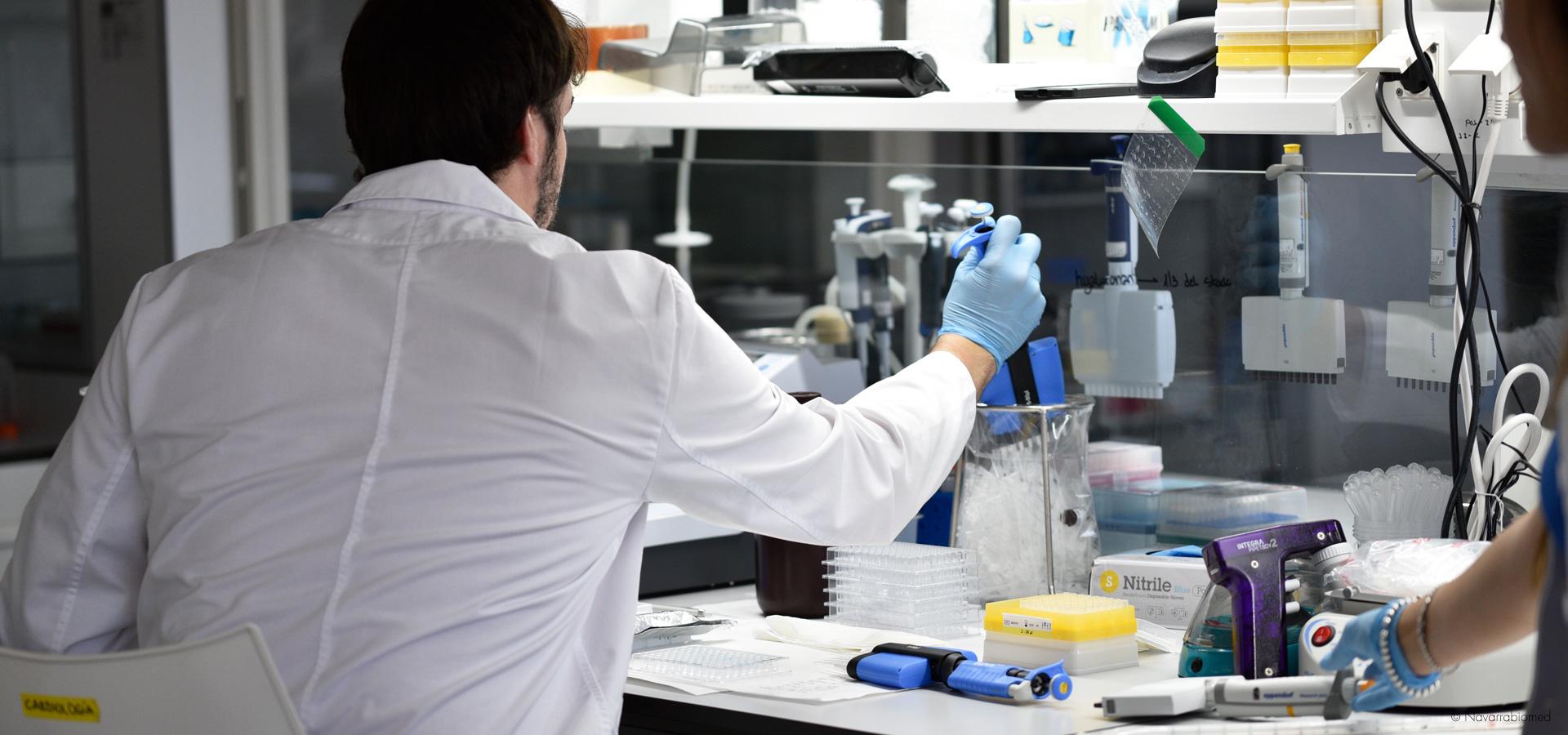

La finalidad de estas ayudas es impulsar la capacitación, consolidación, colaboración y coordinación de los Centros tecnológicos y Organismos de investigación y difusión de conocimientos radicados en Navarra.
Resolución 245E/2018



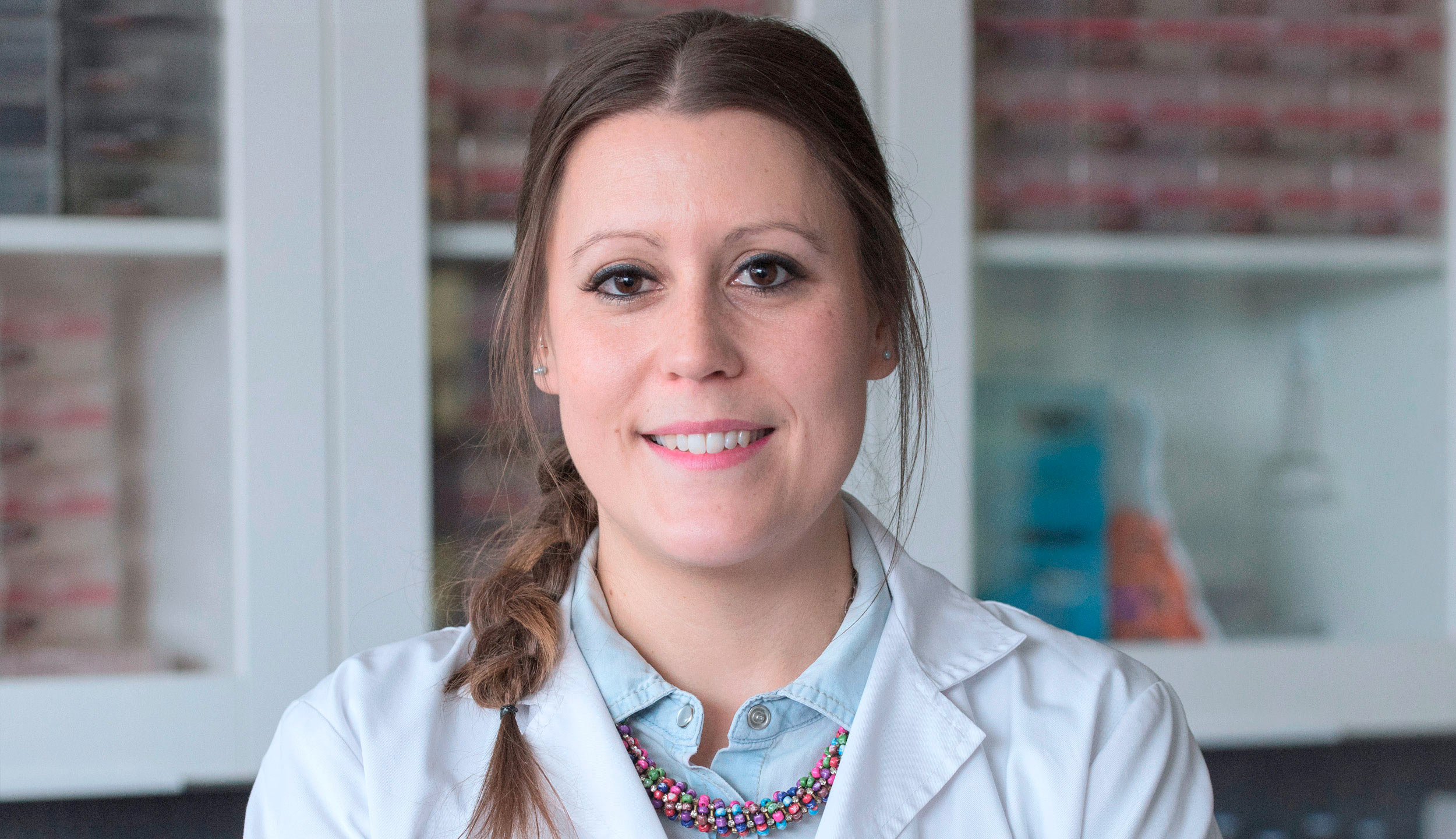
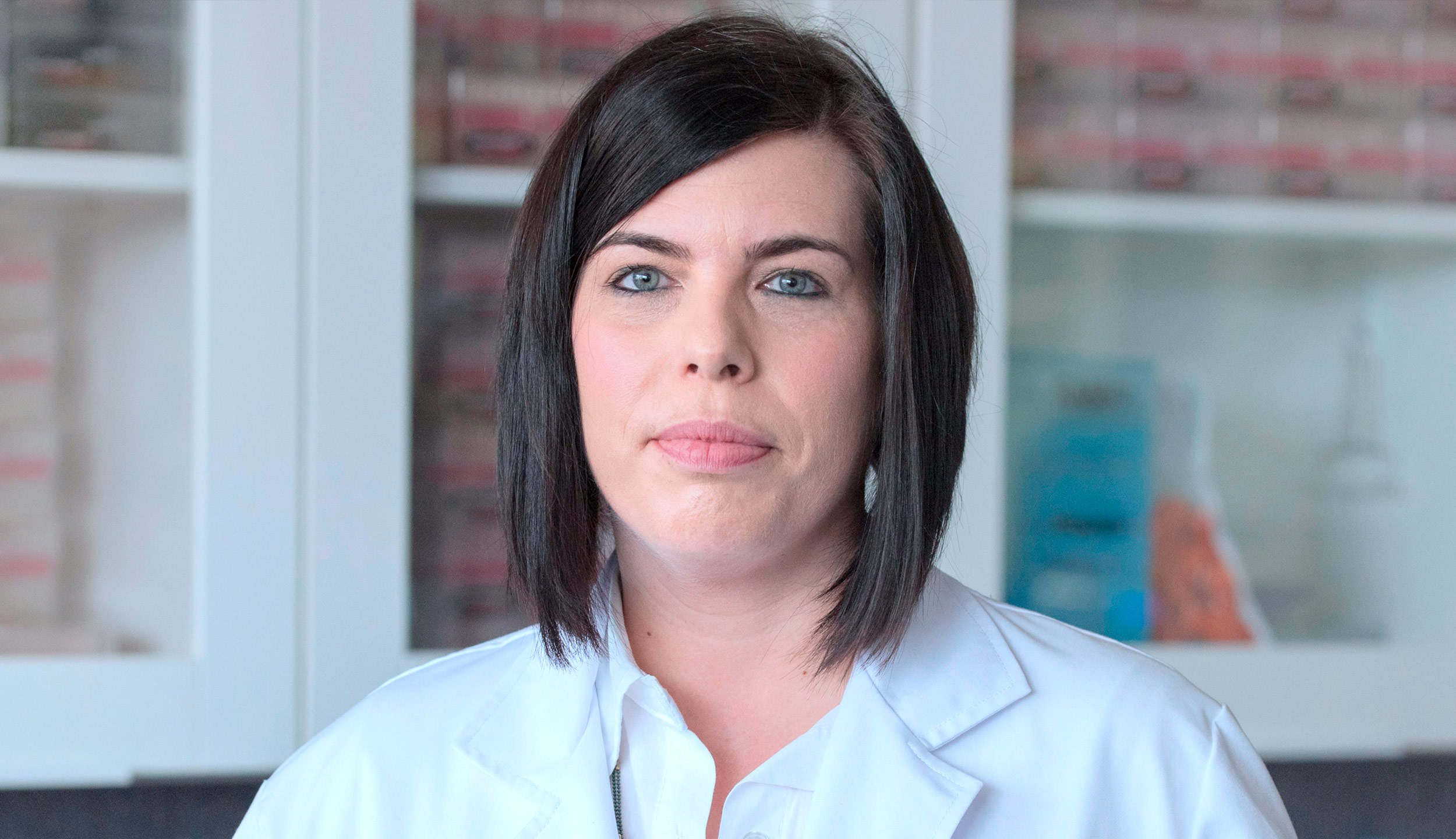
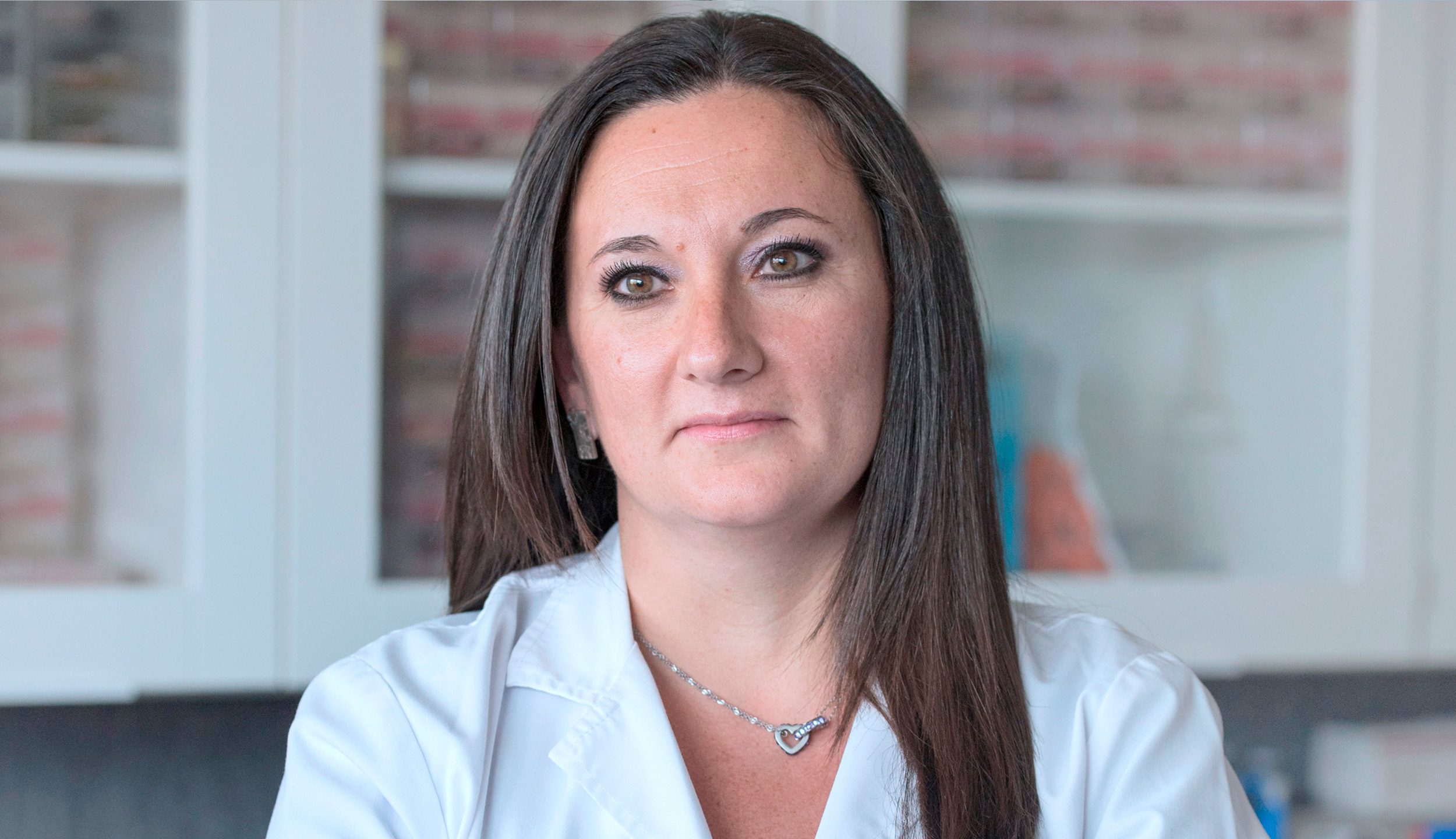

The Translational Cardiology Research Unit is made of scientists who do basic research at the Navarrabiomed biomedical research centre and clinical researchers from the Clinical Cardiac Area at the Navarra Hospital Complex. The team’s primary goal is to study novel therapeutic targets for different types of cardiovascular diseases such as heart failure, aortic stenosis, aortic insufficiency or mitral valve disease.
This Unit carries out research projects in collaboration with the CIC at Nancy, the INSERM U1138 research centre based in Paris, the INSERM UMR1048 from Toulouse (France), and the Complutense University of Madrid.
Lines of research:
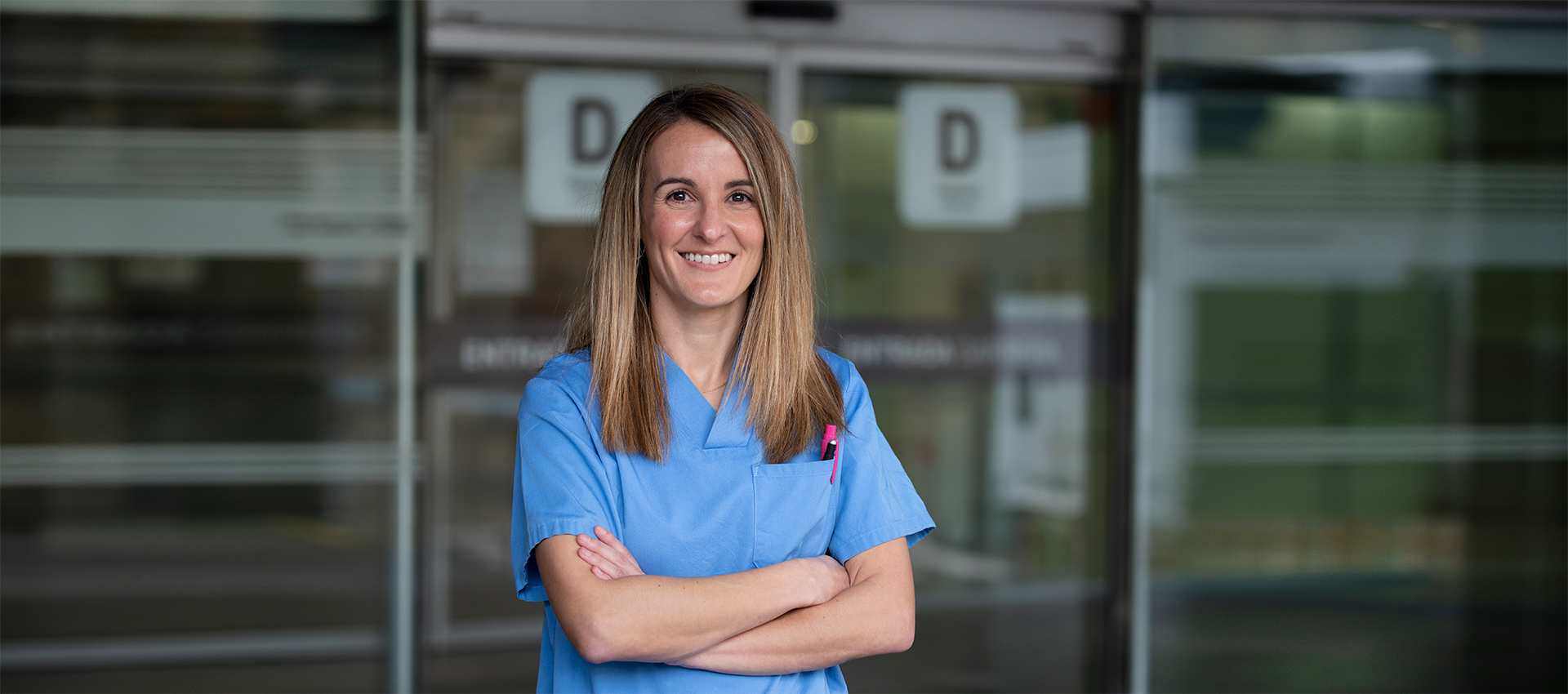
The doctoral work, entitled "Role of sST2 in myocardial fibrosis in severe aortic stenosis”, has been developed at the University Hospital of Navarra and Navarrabiomed under the direction of Natalia López Andrés, Principal investigator of the Translational Cardiology Unit.
Aortic stenosis is the most common valvular heart disease in Europe and North America affecting 2-7%, depending on the region, in population over 65 years of age. To date, there is no medical treatment that can slow down or reverse the evolution of the disease, so aortic valve replacement (surgical or percutaneous) is the only treatment when symptoms or ventricular dysfunction appear.
This disease produces an abnormal progressive narrowing of the aortic valve that, as a result of pressure overload, causes hypertrophy of the left ventricle. In this process, myocardial fibrosis has an important pathophysiological role, as well as a prognostic role. Initially, myocardial fibrosis is part of a compensatory mechanism, but in advanced stages a focal replacement fibrosis appears, leading to ventricular dysfunction and heart failure. The pathophysiological mechanisms underlying these processes are not fully understood.
Focal replacement fibrosis can be detected and quantified by cardiac magnetic resonance imaging (MRI) with the delayed enhancement (DE) sequences. The presence of DE in patients with severe aortic stenosis has been shown to be an independent predictor of mortality and unfavourable clinical outcome in this group of patients. However, MRI is an expensive technique with limited availability, so it is not used in the follow-up of this group of patients in routine clinical practice.
The hypothesis of this thesis is that as the levels of soluble ST2 (sST2), a biomarker associated with the process of fibrosis and myocardial remodelling, are elevated in case of aortic stenosis, they may have a prognostic value. Specifically, this study addresses the role of sST2 in myocardial fibrosis in severe aortic stenosis.
Research development
The work is proposed from a translational point of view, and has a dual goal. First of all, to delve into the pathophysiological role of tSS2 in severe aortic stenosis. To this end, a proteomic study has been carried out to assess the proteins modulated by sST2 in human cardiac fibroblasts and the in vitro effects of sST2 on human cardiac fibroblasts have been investigated. The results have been validated in vitro in a rat model with pressure overload and in myocardial biopsies of patients with aortic stenosis that underwent surgery.
Likewise, it has been demonstrated that sST2 exerts a deleterious role in human cardiac fibroblasts, on the one hand, affecting the mitochondrial function of the cell and thus increasing oxidative stress and the synthesis of proinflammatory molecules and on the other hand, promoting differentiation to myofibroblasts and increasing the synthesis of profibrotic molecules. These findings were validated in the animal model and in myocardial biopsies of patients with aortic stenosis.
Secondly, from the clinical point of view, a cohort of patients with severe aortic stenosis with surgical indication was analysed to check if the blood levels of sST2 are associated with the DE evaluated by MRI in patients with severe aortic stenosis. Thus, it is observed that patients with severe aortic stenosis with cardiac MRI DE have significantly higher blood levels of sST2 than those without RT. Blood sST2 levels are positively correlated with DE mass and with VI mass in patients with severe aortic stenosis. High levels of sST2 make it possible to identify patients with severe aortic stenosis with DE, without having to perform cardiac MRI, in a simple way that can be applied in routine clinical practice.
Dissemination of results
The work carried out has led to several scientific publications: in 2019, in the journal Clinical Science, “Soluble ST2 promotes oxidative stress and inflammation in cardiac fibroblasts: an in vitro and in vivo study in aortic stenosis”, and in 2020 in the journal Cells, “Soluble St2 Induces Cardiac Fibroblast Activation and Collagen Synthesis via Neuropilin-1”.
In addition, the results have been disclosed at several national and international congresses such as the SEC Congress in Bilbao (in 2015 and in 2017), at the 29th EACTS Annual Meeting in Amsterdam, in 2015 or at the Heart Failure Congress in Paris, in 2017.

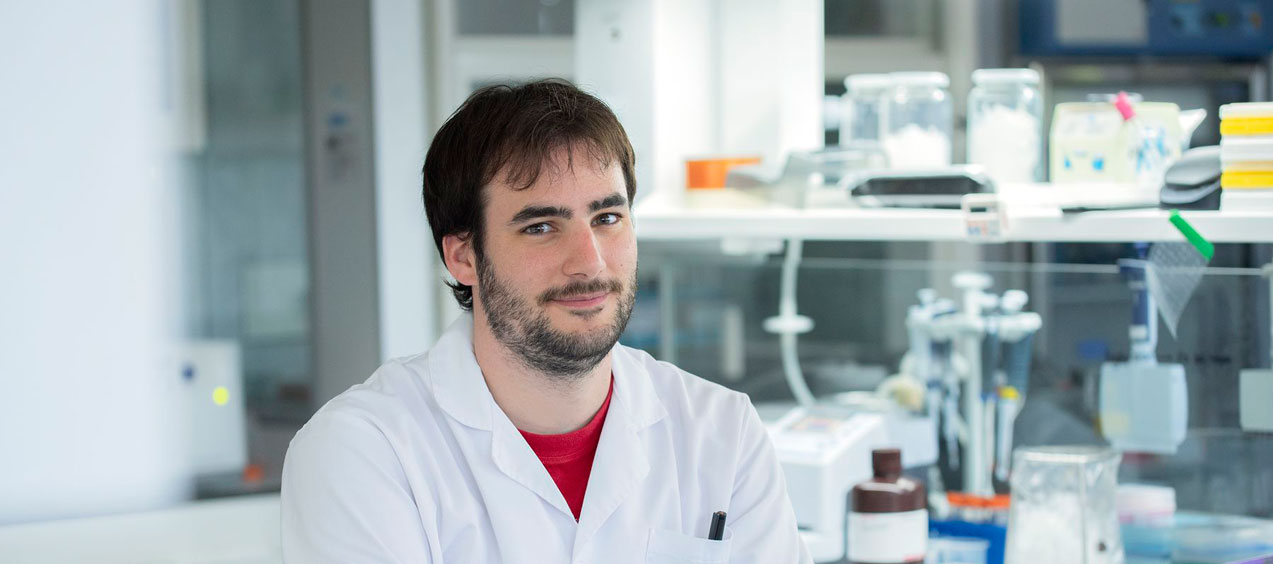
Biochemist Jaime Ibarrola Ulzurrun (Pamplona, 1991) has shown for the first time that a hormone is involved in mitral valve prolapse, a heart valve disease that leads to heart failure, and that a series of drugs can have positive effects on this condition. ‘The drugs known as antimineralocorticoids or mineralocorticoid receptor antagonists (MCRAs) are a promising option to reduce mitral valve remodelling. The only existing solution to date was surgery,’ Ibarrola explains. This was the subject of his doctoral thesis at the Public University of Navarra (UPNA).
The mitral valve is the valve between the left atrium and the left ventricle of the heart. Mitral valve prolapse is a condition in which the two valve flaps of the mitral valve do not close smoothly or evenly, but instead bulge (prolapse) upward into the left atrium. Sometimes, the mitral valve does not close tightly, allowing blood to flow backward in the heart. This condition is known as mitral valve regurgitation or mitral insufficiency. Most people with mitral valve prolapse – one of the most common heart conditions, affecting 176 million people around the world – never have problems. They do not need treatment or lifestyle changes. Some, however, do need to be treated. ‘To date, no drugs have been developed for this condition, so the only viable solution is surgery,’ Ibarrola explains. His doctoral advisor was Natalia López Andrés, senior researcher at the Cardiovascular Translational Research Unit of Navarrabiomed, a joint centre of the Government of Navarra and the Public University of Navarra (UPNA).
New therapeutic targets
Ibarrola’s research responds to the need to study ‘new mechanisms and new therapeutic targets in order to find drug treatments for mitral valve prolapse.’ ‘Mineralocorticoids are a class of hormones produced by the human body. The primary mineralocorticoid is aldosterone. The aldosterone/mineralocorticoid receptor (Aldo/MR) pathway can cause cardiac fibrosis. In addition, a large number of studies have shown that the Aldo/MR pathway is involved in a number of heart conditions. MCRA drugs can block the effects of the Aldo/MR pathway. Moreover, significant clinical studies show that they can also improve cardiac function by reducing cardiac fibrosis,’ Ibarrola explains. He conducted his doctoral research project with financial aid from UPNA and a European programme.
Ibarrola worked on the hypothesis that the Aldo/MR pathway could play a role ‘in the development of mitral valve prolapse, modulating cell activation and cellular differentiation.’ ‘Furthermore, the Aldo/MR pathway could become a new therapeutic target in this disease, and blocking this pathway with MCRA drugs could prevent the alterations associated with mitral valve prolapse. For the first time, we were able to show that the Aldo/MR pathway is involved in the development of mitral valve prolapse and that the drugs could have a positive effect on this condition,’ Ibarrola concludes. His doctoral thesis got an A-grade cum laude.
Ibarrola’s résumé
Jaime Ibarrola holds a degree in Biochemistry and a master’s degree in Biomedical Research from the University of Navarra. At present, he is a postdoctoral researcher at the Molecular Cardiology Research Institute (MCRI) at Tufts University (Massachusetts, USA).
As a doctoral student, Ibarrola was twice a visiting scholar at the Cordeliers Research Centre, Sorbonne University, in Paris. He shared his results in eight international conferences in Germany, Spain, France and Ireland. Ibarrola is the author of about a dozen papers published in international scientific journals.


Navarrabiomed - Centro de investigación biomédica
Complejo Hospitalario de Navarra, edificio de investigación.
Calle Irunlarrea, 3. 31008 Pamplona, Navarra, España.